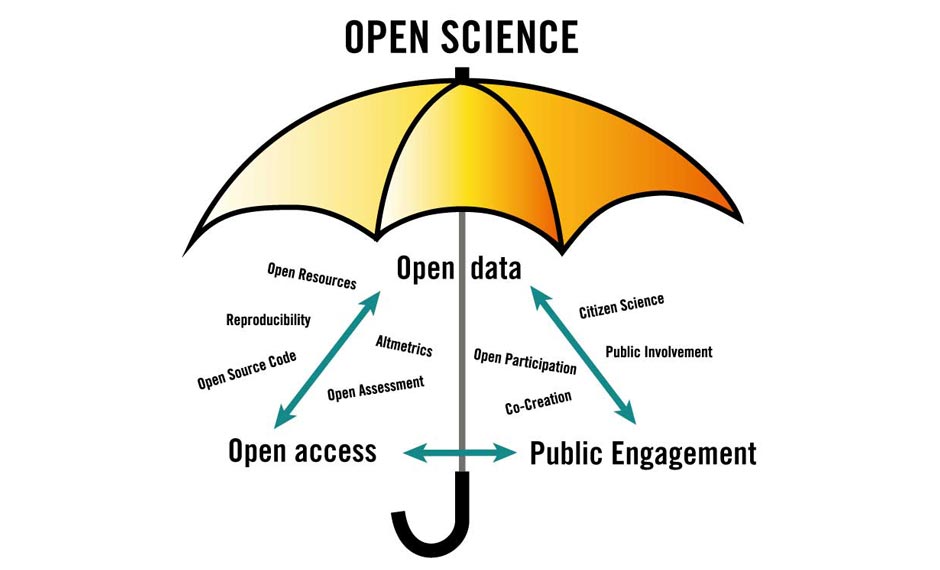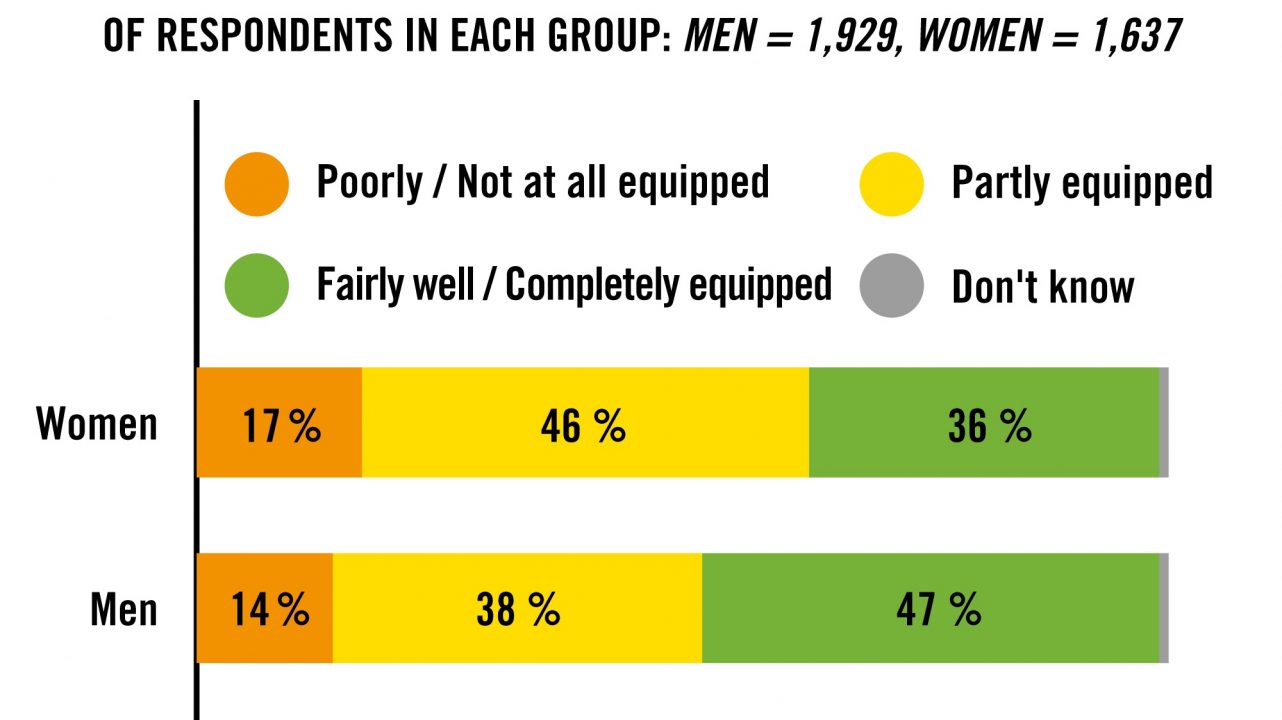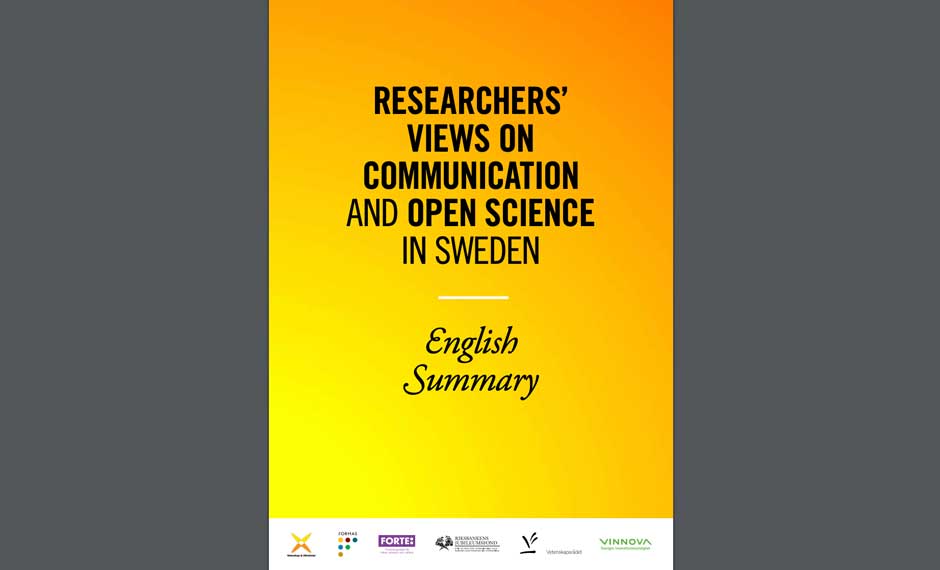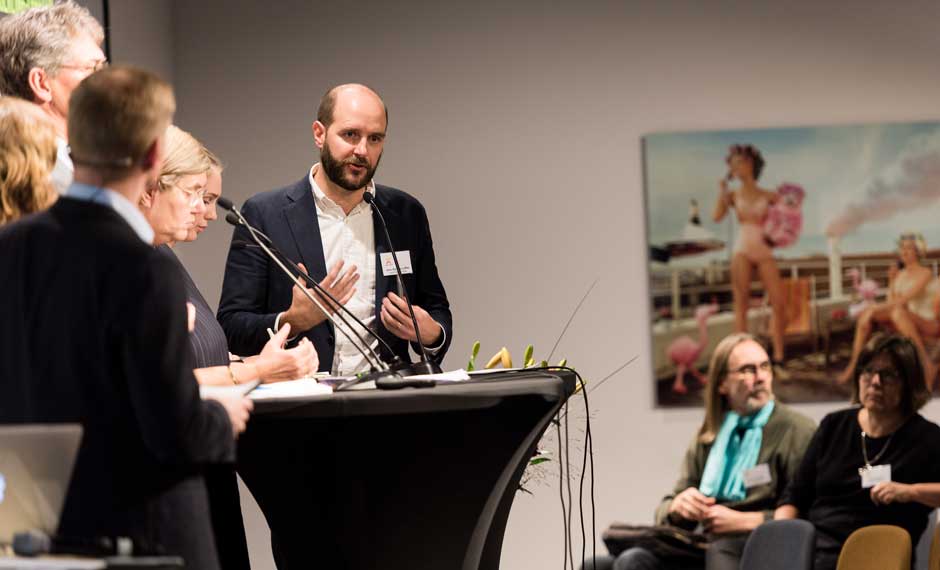During 2018–2019, Vetenskap & Allmänhet in collaboration with the Swedish Research Council, Vinnova, Forte, Formas and Riksbankens Jubileumsfond, conducted a survey of Swedish researchers’ views on communication and open science. In the study, we investigated researchers’ attitudes and activities as well as the possible barriers they experience when communicating their research.

The two overarching aims of the project were to: (1) update knowledge about researchers’ views on communication with the outside world and the factors that affect it, and (2) investigate researchers’ knowledge of, and attitudes towards open science. The emphasis is on the researchers’ perspective, but their views of their own role will compared to those of communication professionals. Up-to-date knowledge about these topics is needed in order to be able to make informed and strategic decisions about support structures to promote communication between researchers and the outside world.
The project consisted of two parts – a qualitative pre-study and a quantitative survey.
Part 1 of the study
The first part of the project, which was carried out in collaboration between Vetenskap & Allmänhet and the Swedish Research Council in autumn 2017 and winter 2018, consisted of qualitative interviews with ten researchers and four science communication professionals. Altogether, people from ten Swedish universities and two public research funding bodies participated. A reference group was set up for the study, which included researchers and communication managers at universities and research funding bodies.
The findings are presented in the report Researchers’ views on science communication and open science. It shows, among other things, that researchers feel that colleagues positively support their communication efforts and that communication is regarded as important but given lower priority in favour of tasks that are perceived to be rewarded more highly.
Part 2 of the study
In order to gain broader and more detailed knowledge of researchers’ views on these issues, we conducted a quantitative survey with a representative sample of researchers and science communicators in Sweden. The survey provided the opportunity to systematically map differences and similarities between researchers and communication professionals, to what extent researchers are engaged in communication and public engagement work, as well as the differences between different subgroups of researchers (e.g. gender, age, institution, research field). The sample also included managers who conduct research, but not people in the universities’ management teams.
The data collection consisted of:
- A smaller questionnaire aimed at communication professionals at universities and research funding bodies in Sweden (about 100-200 people)
- A larger survey aimed at researchers at Swedish universities (about 10,000-20,000 people)
- Workshop with stakeholders in the sector in order to follow up on the survey results and explore them in greater depth.
In order to ensure that the survey questions are current, comprehensive and comparable, they were been designed on the basis of the results of the first part of the study and on similar studies conducted in other European countries. The questions have been further refined in close consultation with the survey’s sponsors and a reference group linked to the study. The questions were then tested through cognitive interviews with people from the sample population. The field work in the researcher-survey is conducted by Ipsos.
The project created an up-to-date picture of the attitudes and activities of Swedish researchers and science communicators, including perceived barriers and needs. The study provides research funding bodies and universities with valuable data to inform the strategic development of policy and support structures that help researchers to meet the requirements and challenges associated with communication and open science that they face in their work today.
A summary of the report is available in English.
The whole report is available in Swedish only.
For more information about the project, please contact Gustav Bohlin, researcher at VA.
Science and society
One of a researcher’s tasks is to collaborate with the surrounding society. According to the Swedish Higher Education Act, the mission of universities includes ”collaborating with the surrounding society and informing others about their activities and work, as well as ensuring that research findings produced by university are utilised”.
In Sweden, interest in collaboration between universities and the surrounding society has grown considerably in recent years. The concept is also central to the most recent Swedish research bill, where one of the goals of research policy is ”stronger and clearer interaction between universities and the surrounding society”.
In May 2016, the governments of EU countries decided that the Union should transition to a system of open science. ”The overall motivation for open science is that it helps to improve the quality of research, strengthens competitiveness and its benefit to society, and promotes innovation and citizen participation, and therefore, in the long run, is an issue of democracy,” said Helene Hellmark Knutsson, Minister for Higher Education and Research, to the EU Committee of the Swedish Parliament prior to the Competitiveness Council’s meeting in May 2016 when the decision was made.
Open Science
In the research bill adopted by the Swedish Parliament in April 2017, the Government clarified its goal:
”All scientific publications that are the result of publicly funded research should be made immediately accessible upon publication. Similarly, research data that forms the evidence base of scientific publications should be made openly available at the same time as the associated publication.”

Open science is an umbrella concept that encompasses open access, open data, altmetrics (alternative ways of measuring the impact of research), citizen science and public engagement, as well as communication between researchers and other groups in society. Citizens and other stakeholders must therefore be included at various stages, which means that communication during the research process becomes more important and complex than ever before.
Some research funders require researchers to carry out communication activities and/or include different stakeholders in the projects that they fund. For example, in all EU-funded research projects the results must be communicated and disseminated as well as published with open access.
Despite decision makers’ increased focus on the communication of research, we still know very little about how researchers at Swedish universities view communication and open science. This is something that needs to be investigated. We also need to find out how much time researchers spend doing this kind of work, the opportunities and barriers they experience and the support they need to be able to work in a more open, and more communicative and collaborative way.
Read the latest about the study:
“Lack of time greatest barrier to doing communication”. New study on researchers’ views on communication and open science

Press release 25 September 2019 Sweden’s researchers want to communicate more with the outside world but are hindered by both internal and external obstacles, according to a survey of 3,700… Läs mer
Skapad:
2019-09-25Uppdaterad:
2023-02-20Kategorier:
Forskarstudie, News articles, Press Releases, ResearchersResearchers’ views on communication and open science in Sweden – a summary

VA Report 2019:8 (mer …) Läs mer
Skapad:
2019-09-25Uppdaterad:
2023-02-20Kategorier:
Forskarstudie, Researchers, VA Reports & Papers, VA-rapportLarge-scale survey to investigate what researchers in Sweden think about communication and open science

To what extent do researchers want to communicate with the external world? What barriers do they face and what type of support would be of help to them? Are they… Läs mer
